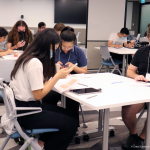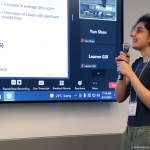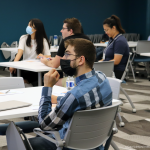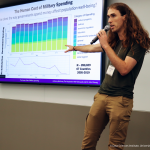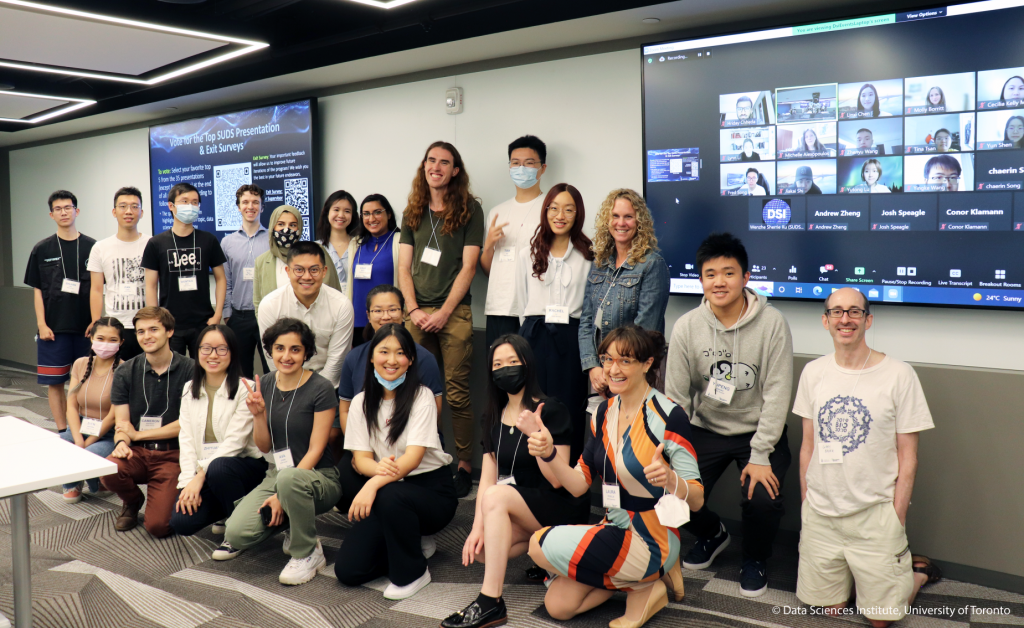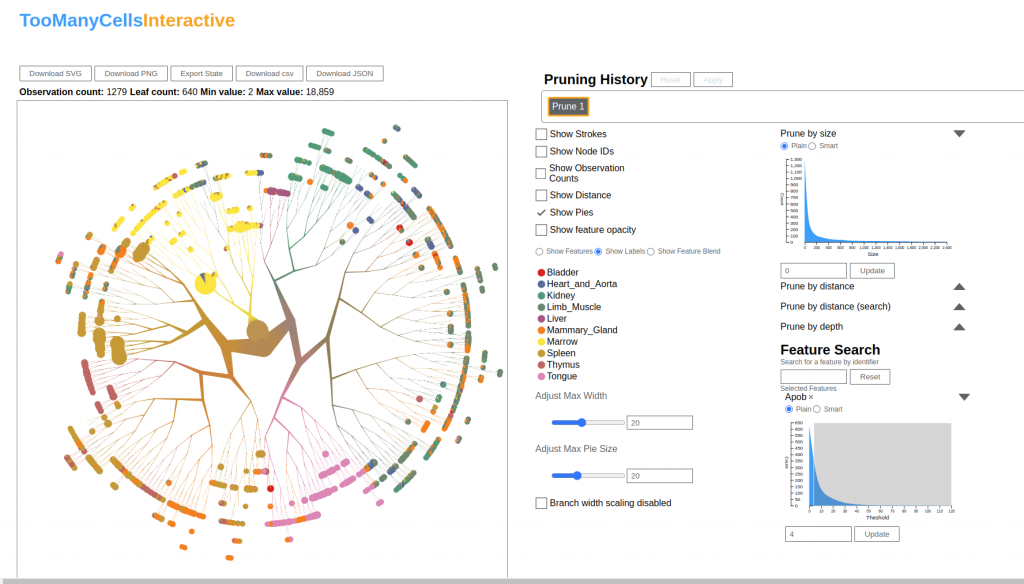DSI Catalyst Grants, supporting collaborative research teams for impact
Arctic regions experience climate change at a significantly faster rate than the rest of the planet. Residents in Northern Canada, and other Arctic regions, have long perceived anomalies in weather patterns, changes in long-standing sea ice patterns, and ecosystem stress. But these changes have been difficult to document, making it challenging to understand how they will ultimately impact human health and food security.
The Data Sciences Institute (DSI) is funding cross-disciplinary research teams focused on using the data sciences to solve complex and pressing problems. Yuhong He (Geography, Geomatics & Environment, UTM) and Kent Moore (Chemical & Physical Science, UTM), one of the multidisciplinary collaborative research teams to receive a DSI Catalyst Grant, are using environmental data to help gain a more complete understanding of the changes happening in Northern Canada.
“Cross-disciplinary data science research has the potential to solve some of the most pressing challenges we face today. Professors He and Moore’s research is just one example of many. We are beginning to see the impact of DSI Grants and the capacity of bringing collaborative research teams together. We are excited to see how Catalyst Grant recipients continue to catalyze the transformative nature of the data sciences,” says Gary Bader, DSI Associate Director, Research and Software.
The power of environmental data science
Professor Moore focuses on the cryosphere. The cryosphere is made up of all the frozen places on our planet like glaciers, continental ice sheets, permafrost, snow and ice. He uses theoretical, computational, and observational techniques to gain insights into the dynamics of the climate system. This helps place observed changes to our climate into a long-term context.
Professor He’s research centers on the biosphere. She integrates multi-source remote sensing big data into ecological research for a better understanding of the drivers and mechanisms shaping these changes in vegetative ecosystems. Her research helps improve conservation efforts.
Together the team uses Earth observation data and machine learning to reveal patterns and trends in land surface changes and their possible impacts on people. These results provide a crucial basis to develop long-term strategies to help cope with the climate crisis and its resulting environmental, societal, and economic impacts.
The funding support from DSI increases the team’s capacity across a range of disciplines and helps them conduct an analysis of the environmental changes impacting northern Canada by developing open-access geospatial datasets. The funding also supports reproducibility and the establishment of an Earth observation data management system for sharing and using these datasets. Reproducibility is a DSI Thematic Program that strives for the development of widely adoptable methodology, processes, and infrastructure to share data and code locally and in privacy-compliant ways.
Helping northern communities access reliable environmental data
“Pressing global issues like climate change require integrated, interdisciplinary approaches to successfully address research questions involving complex environmental systems. Both Professor Moore and I have extensive experience using Earth observation data and machine learning approaches, and our research on the cryosphere and biosphere make us an ideal team to establish a complete Earth observation data management system for northern Canada,” says Professor He.
For many northern communities, access to reliable data that illustrates the impact of climate change on regional ecosystems is difficult to access. An aggregate data set does not exist in a usable or scalable way. Local and regional approaches to environmental and climate action, like those taken by Nunavut’s Qaujigiartiit Health Research Centre, require access to longitudinal data to make informed decisions about the health of residents. The establishment of this Earth observation data management system will enable a network of researchers to upload, share, and download spatial data spanning a nearly 50-year period.
“This research will not only advance and redefine our understanding of climate and ecosystems in this region but also provide potential users with direct knowledge and insights to develop local and regional adaptation strategies,” says Professor He.

